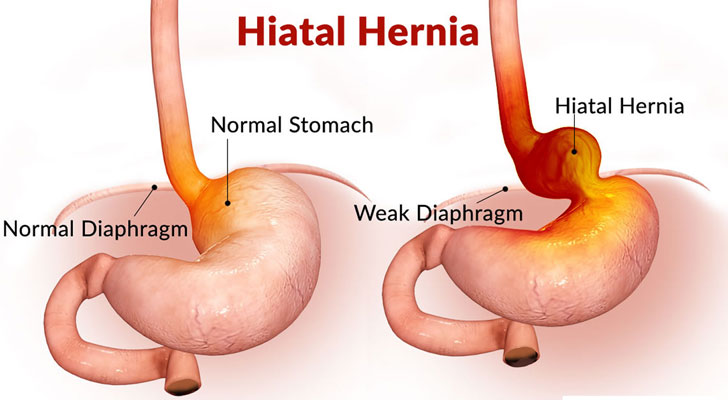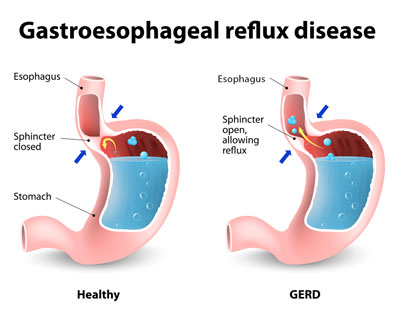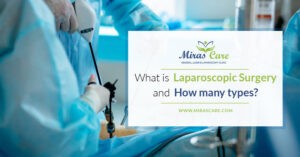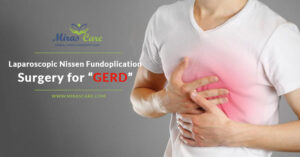How Hiatal Hernia and Gastroesophageal Reflux Disease are related?
If someone has Hiatal Hernia chances are he or she may be also be suffering from Gastroesophageal reflux disease or the other way around. It is common, several types of research show Hiatal Hernia is associated with GERD or acid refluxes.
A Hernia is a small bulge that occurs when an internal organ pushes through a weakness in the muscle or surrounding tissue wall.

A Hernia occurs usually between the chest and hips. And Hiatal Hernia occurs when the upper part of the stomach moves up into the chest and pushes through the diaphragm (diaphragmatic hiatus). The diaphragm is the muscle separating the abdomen from the chest.
Gastroesophageal Reflux Disease (GERD) or acid reflux occurs when gastric acid frequently flows back into the tube called the esophagus which connects the mouth and stomach.

What is the Reason for Gastroesophageal Reflux
The reason for Gastroesophageal Reflux happens when the lower esophageal sphincter (LES) is weak or relaxes wrongly. The LES opens during normal digestion to allow food to pass into the stomach and closes to prevent the flow back of food and acidic stomach juices into the esophagus.
A Hiatal Hernia can weaken the LES and increase the risk for Gastroesophageal reflux.
The opening in the diaphragm muscle supports the lower end of the esophagus. Many patients with a Hiatal Hernia will not have problems with heartburn or acid reflux. But having a Hiatal Hernia may allow stomach contents to reflux more easily into the esophagus causing discomfort.
Read More about Hernia Treatment & Surgery in Gurgaon
Hiatal Hernias are often asymptomatic. One may not be aware of their condition until the protrusion of the stomach through the hiatus is quite large.
What are the Symptoms?
However, larger Hiatal Hernias are big enough to allow undigested food and stomach acids to reflux into the esophagus. This means that people with Hiatal Hernia are likely to experience the symptoms of GERD. These include:
- Heartburn
- Dysphagia (trouble swallowing)
- Frequent burping
- Sore throat
One must note acid reflux can be caused because of a wide variety of underlying factors other than the Hiatal Hernia. If you have acid refluxes more than twice a week, you must see a doctor. A doctor can diagnose Gastroesophageal Reflux Disease based on a physical examination or other tests.
What is Surgical and Non-Surgical Treatment?
Home Treatment
If someone has this type of Hernia they can have more uncomfortable acid refluxes at night as when someone lies down the acid moves easily into the esophagus.
- One solution is to modify the diet.
- Avoiding fried, fatty foods,
- and limiting caffeine intake can help but this may not be a long-term solution.
- Some anti-acid tablets can relieve symptoms of GERD, However, long term use could result in side effects.
For the vast majority of people with GERD and Hiatal Hernia conditions, symptoms can often be effectively managed with a combination of lifestyle changes and medication. But few patients may require laparoscopic surgery for Hiatal Hernia.
Surgical Treatment
A laparoscopic surgeon can treat Hiatal Hernia by a minimally invasive surgery called fundoplication. This will keep the stomach from bulging through the diaphragm opening and to prevent stomach acid from flowing into the esophagus.
What are the Benefit of laparoscopic Surgery?
- Get relief from symptoms
- Don’t have to continue anti-acid medicines anymore
If you are facing GERD-related symptoms, please visit mirascare, our specialist Laparoscopic surgeon in Delhi NCR Haryana will help you to find the best treatment solution.



